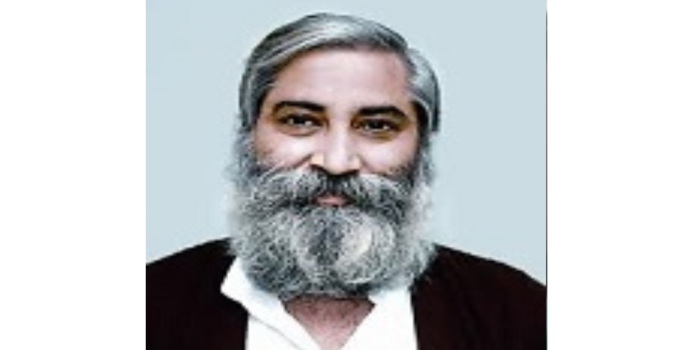by Sandeep Pandey
On May 16, 2014 when the entire country was riveted to TV watching Modi’s landslide victory, the Supreme Court was reprimanding the Gujarat police for shoddy investigation. The bench comprising of Justice A.K. Patnaik and Justice Venkate Gopala Gowda said, ‘We intend to express our anguish about the incompetence with which the investigating agencies conducted the investigation of the case of such a grievous nature, involving the integrity and security of the nation. Instead of booking the real culprits responsible for taking so many precious lives, police caught innocent people and got imposed the grievous charges against them which resulted in their conviction and subsequent sentencing.’
After the attack on Akshardham temple in Gandhinagar on 24 September, 2002, in which 33 people including the two attackers, were killed and 86 injured, six people – Sulaiman Ajmeri, Shan Miya alias Chand Khan, Mufti Abdul Qyyum Mansuri, Mohammed Salim Shaikh, Abdul Miyan Qadri and Altaf Hussain – were made the accused. A letter was found on the body of attackers written in Urdu but surprisingly it was clean, not soiled or stained like the body of attackers. In addition their bodies had multiple holes and tears from the bullets which killed them. This raises question about the authenticity of the letter and whether it was actually recovered from the site of attack. In July 2006 POTA court gave death sentence to Ajmeri, Miya and Mansuri whereas Shaikh got life imprisonment, Qadri a ten year jail term and Hussain a five year term. On 30 May, 2010 these sentences were upheld by the Gujarat High Court. On 16 May SC acquitted all the six holding that prosecution failed to establish the guilt of the accused. The bench held that the confessional statements of the accused were invalid evidence from the point of view of law. These confessions were obtained under duress and possibly after torture of the accused, a standard practice followed by police in cases where they don’t have evidence.
It is noteworthy that the investigation in the case was carried out by DSP D.G. Vanzara, himself in jail on charge of being involved in fake encounter of Sohrabuddin. Now, Vanzara’s closeness to Amit Shah and Narendra Modi is well known.
The two attackers, identified as Murtaza Hafiz Yasin and Ashraf Ali Mohammed Farooq, were declared as Pakistani nationals by the then Home Minister L.K. Advani. 28 more accused were declared as absconding in 2010.
With the SC judgement delivered on Narendra Modi’s victory day, the role of Gujarat police is under suspect. If the six sentenced by POTA court and HC are innocent then who is the real culprit? If the accused were innocent how are we to believe the identity of the attackers? The big question that arises is what if the whole attack was faked? Why was it carried out? Was it to ease the pressure on Narendra Modi facing national and international criticism for his role in Gujarat violence which took place early the same year?
The abovementioned questions demand answer and it is expected that the new government headed by Narendra Modi will clear the mystery on Akshardham temple attack. Gujarat is the only state in the country where senior police officers are in jail. A formal colleague of Modi, Maya Kodnani is also in jail for her role in 2002 violence.
In the euphoria of Modi taking over as PM of India people appear to be ignoring the murky past of Gujarat mentioned above. If Modi has any association with these incidents then it is a serious matter. However, if these incidents have taken place in Gujarat without Modi’s knowledge then it is a even more serious matter.
The accused now free after 11 years are relieved but nothing can compensate the damage done to their lives by the highhandedness of the police and security agencies. They have probably lost their source of livelihood, most friends and relatives may maintain distance from them and most importantly their children would have grown up with a stigma. What can compensate the loss of credibility in society? 11 years is a long duration. It can leave a person with broken spirits. It is unclear whether any person would be able to rebuild their lives, career, social credibility after such a traumatic experience.
What was a mere mistake for police and security agencies ruined the lives of entire families. The media projected these accused as terrorists but did not do enough to undo the damage to their personalities after they were acquitted. Hence it doesn’t rectify the impression created in the minds of society about the accused. They continue to believe that those accused are terrorists. Even the media continues to use the term ‘terrorist’ for them, often even before their conviction. This creates a polarization in society. Needless, to say that this polarization helps a political party like BJP.
Playing with innocent people’s lives has been part of politics of polarization. And BJP is certainly guilty of that. The polarization of votes has helped it win the national elections with a thumping majority. When Narendra Modi praises Amit Shah for having won more seats for BJP in UP alone than Congress was able to win in the entire country, he is highlighting Amit Shah’s ability to polarize the votes. But there can be no denying that this kind of politics will ultimately harm the society and nation. It can make India a police or a military state but the inner strength of society will be weakened, for a polarized people will not be united.













